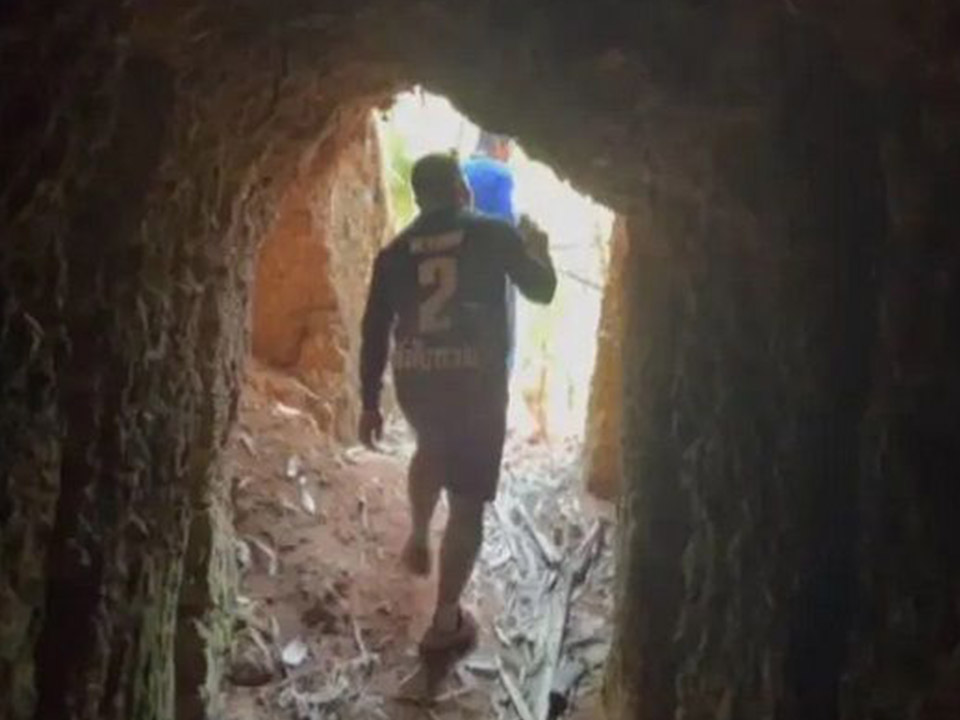
A World War II bunker was discovered in Kanchanaburi’s Sangkhlaburi district prompting local residents to call on government agencies to expedite studies for preservation and development into a tourist attraction.
The bunker is believed to have been excavated during World War II when Japanese troops forced prisoners of war to build the Thailand- Burma railway also known as the Death Railway. It is situated on a hill about 100 meters away from the Highway 323 linking Sangkhlaburi – Three Pagodas Pass area.
The discovered bunker measures approximately 2 meters wide, 180-190 centimeters tall, and around 35 meters long, dug into the hillside and connected to the lush forested area behind it.

Inside the bunker, the temperature is comfortably cool (around 24-25 degrees Celsius) with good ventilation, indicating its likely use as an air raid shelter during wartime construction with traces of the use of pickaxes, hoes, and crowbars in excavation.
It remains relatively intact, with evidence of earth collapses only at the entrances on both sides of the hill. Traces of smoke residue were also found on the walls where lamps were likely installed to illuminate the interior of the bunker.
Part of the bunker’s structural integrity is attributed to its design, resembling pillars dug every 2 meters throughout its length, combined with the soil composition in the excavated area being denser than usual.
Local residents are urging relevant authorities to conduct further surveys and studies for preservation and development into an educational and tourist destination, aiming to conserve the site and generate income for the local community in the future. (TNA)








